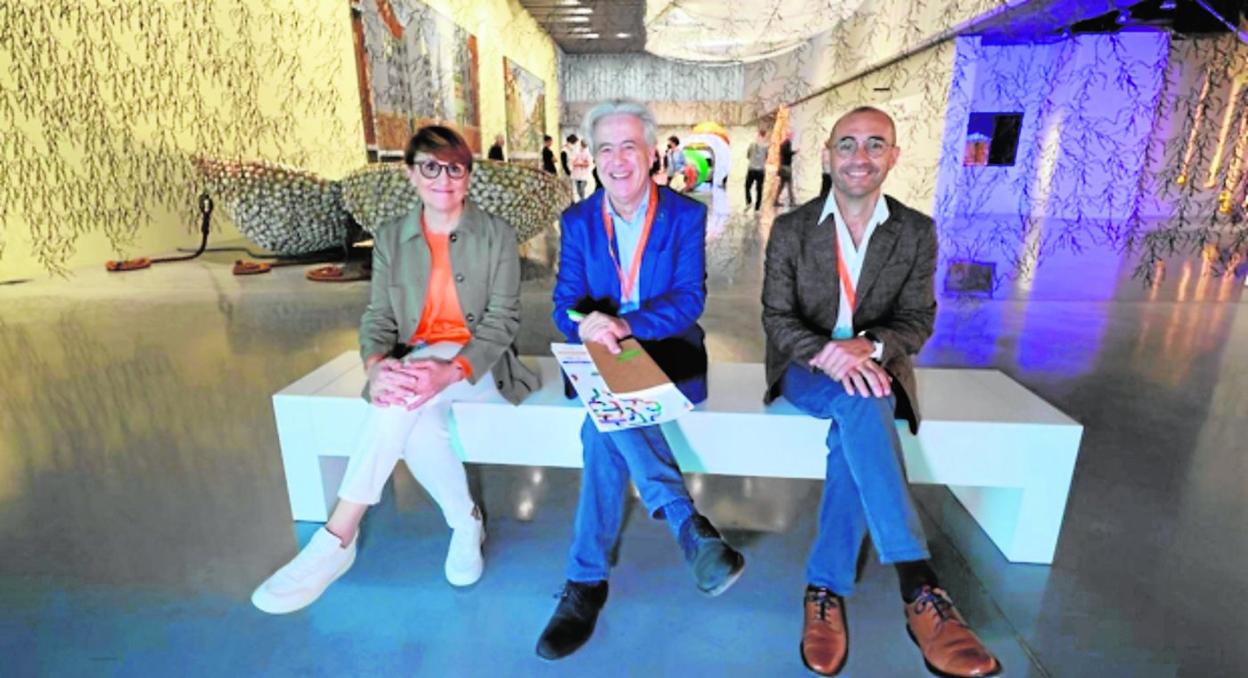Malaga is a reference point in use of artificial intelligence in cancer treatments
The Pompidou Centre recently hosted a multidisciplinary symposium on advances in the development of new strategies and technologies
SUSANA ZAMORA
MALAGA.
Friday, 29 April 2022, 13:16
The fight against cancer has a powerful ally in artificial intelligence, a tool which is still new but which, together with clinical consultations and information from the molecular biology laboratory is going to help specialists know more about the illness and prescribe better treatments for patients.
Malaga is already a reference point in this field because it has the Galén system, the biggest database, which contains information about the medical histories of over 60,000 cancer patients, collated since the late 1970s in the Regional and Clínico Universitario hospitals in Malaga and, for the past two years, the Costa del Sol hospital in Marbella.
Although Galén has been operative since 2008, its present version 3.0 is the first to be prepared to incorporate all the artificial intelligence technology. Malaga is already working on a technique, called natural language processing. Until now, specialists have had to collate certain information (patient name, gender, age, type of tumour, quantity of haemoglobin, glucose...) and put it all into a database, so they could make a statistical analysis and make certain predictions.
"That is cumbersome and time-consuming, and if anyone puts an erroneous piece of information in it has a repercussion on the final analysis. With the natural language processing, the system acts on what the doctors and nurses have written down and without having to take any other data into account. It's what is known as an 'agnostic' analysis; that is a linguistic analysis, but words are signs and when they are repeated in a certain way, which is intelligible for human beings, for an algorithm it can also be relevant because it finds patterns and can predict, for example, that for that patient something particular might happen," explained Emilio Alba, the head of the Medical Oncology Inter-Centre Management Unit and head of the Medical Oncology service at the Virgen de la Victoria university hospital in Malaga, during the first Symposium on Artificial Intelligence in Medical Oncology, which took place in the Pompidou Centre in Malaga city recently.
Experts are already convinced that artificial intelligence has enormous potential but there is a great deal of work still to be done.
Everyday consultations
"We are not yet in a position to use artificial intelligence in everyday consultations, and that is our main objective," says Dr Nuria Ribelles, a specialist with the Medical Oncology section at the Virgen de la Victoria hospital in Malaga.
"It will help us to make decisions about treatments and whether a patient is likely to present any major side effects from that treatment. This will free up more time for us to spend with patients, but we're not there yet. They are still going to have to develop a computer application so we can use it daily in clinical practice and see whether it is useful," she explains.
So, what Malaga is currently doing is working on the first phase of what will be an artificial intelligence application for medical consultations. That is the overall aim, and for the province to be at the forefront in this field, but in fact the technology is already in use in the field of medicine, mainly in treatment and analysis of images such as X-rays and mammograms.
